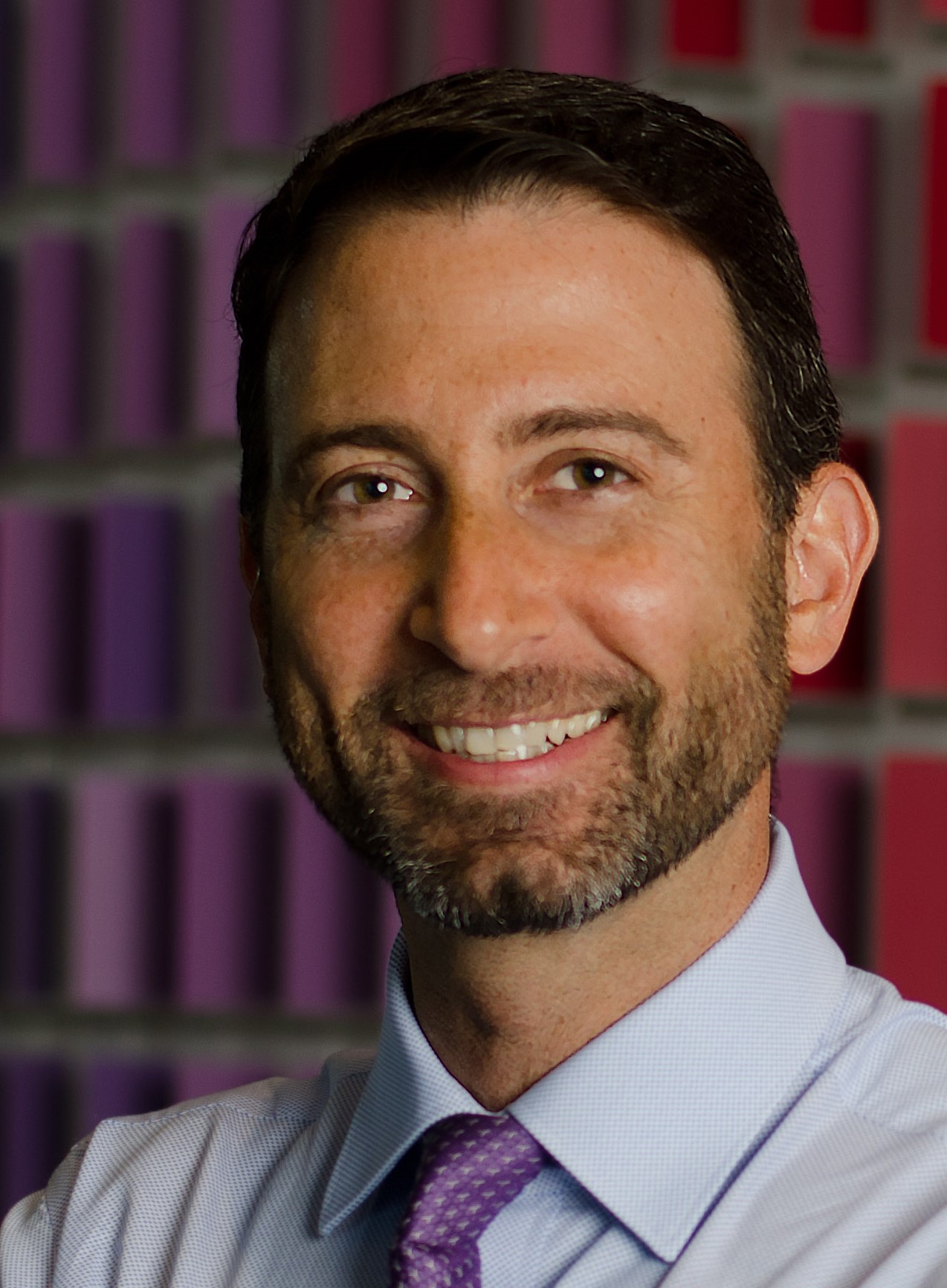When you have the opportunity to ask some of the most interesting people in the world about their lives, sometimes the most fascinating answers come from the simplest questions. The Thrive Questionnaire is an ongoing series that gives an intimate look inside the lives of some of the world’s most successful people.
Thrive Global: What’s the first thing you do when you get out of bed?
Eli Finkel: Snuggle my cat.
TG: What gives you energy?
EF: Running along Lake Michigan
TG: What’s your secret life hack?
EF: A few years ago, I strapped my son, Ben, into a Baby Bjorn because he would only sleep while somebody was walking around with him. Then I stepped onto my treadmill, which I’d rigged with a desk attachment, so I could catch up on email while I was soothing him to sleep. Meanwhile, I turned on the television to watch a football game. A few minutes in, I sped up the treadmill so I could get my heartrate up. That moment—of soothing my baby and dealing with email and watching the game and getting exercise—was surely my lifehackiest.
TG: Name a book that changed your life.
EF: I’ll focus on a book that has changed my life recently: At the Existentialist Café: Freedom, Being, and Apricot Cocktails (2016). This book, written by Sarah Bakewell, tells the story of twentieth century existentialist thought, focusing on scholars like Martin Heidegger, Jean-Paul Sartre, Simone de Beauvoir. I love this book because it challenged me to think more deeply about the nature of selfhood. But I love it even more because it also serves as a biography of some of the most important thinkers of the twentieth century, many of whom led scandalous lives and all of whom were altered fundamentally by the Holocaust. This is a book that challenges its readers to resist complacency—to engage deeply with the world around us as we search for a meaningful existence. It’s also a blast to read.
TG: Tell us about your relationship with your phone. Does it sleep with you?
EF: The relationship is more intimate than I’d like to admit. I suppose I feel about it the way Joaquin Phoenix’s character feels about that operating system (voiced by Scarlett Johansson) in in Spike Jonze’s Her (2013).
TG: How do you deal with email?
EF: The correct question is: How does email deal with me? I’m a slave to my inbox. I need an intervention.
TG: You unexpectedly find 15 minutes in your day, what do you do with it?
EF: See my response to the previous question.
TG: When was the last time you felt burned out and why?
EF: I rarely feel burned out, but I did feel a bit that way a couple of months ago because I found myself in a refractory period following a flurry of goal pursuit. Six years ago, I set myself four major professional goals: (1) to write integrative theoretical articles for scholarly journals; (2) to shift from a 100% position in a psychology department to a 50% position in a psychology department and a 50% position in a business school; (3) to start writing op-ed articles; and (4) to write a book for a general audience. With the recent conclusion of my book tour, I had achieved all of those goals, and my motivation lagged. Fortunately, I love making new year’s resolutions, and so I’ll be setting some major new goals in the coming weeks.
TG: When was the last time you felt you failed and how did you overcome it?
EF: I bailed on a once-in-a-lifetime opportunity, and I regret it. When Aziz Ansari and Eric Klinenberg were writing Modern Romance (2015), we had some fun conversations about a massive experiment we were going to run together. We had Christian Rudder, the then-CEO of OkCupid, on board, which meant that I would have access to a pool of research participants that would normally be unavailable. And Aziz was going to offer a private performance to everybody who completed the study, an incentive that would make it much easier than usual to convince participants to complete it. The study involved, among other things, randomly assigning people to go on five dates—either with the same person five times or with five different people for one time each. Aziz and Eric were on a tight timeline, and the timing wasn’t great for me. I decided that I couldn’t put everything on hold to prioritize this study, so I pulled the plug. I can’t remember what else I was doing that felt so important at the time, but I’m pretty sure I made the wrong call, as the study with Aziz and Eric probably would have the best ever conducted on romantic attraction. If I get another spectacular opportunity like that, I won’t miss it.
TG: Share a quote that you love and that gives you strength or peace.
EF: “Think like a man of action; act like a man of thought.” ~ Henri Bergson (French philosopher)
Eli Finkel is a professor at Northwestern University, where he has appointments in the psychology department and the Kellogg School of Management and holds the Martin J. and Patricia Koldyke Outstanding Teaching Professorship. In his role as director of Northwestern’s Relationships and Motivation Lab, he has published more than one hundred scientific articles and is a regular contributor to the Op-Ed page of The New York Times. His research, which is supported by the National Science Foundation and the National Institutes of Health, has been honored with the Daniel M. Wegner Theoretical Innovation Prize. For more information about The All-or-Nothing Marriage please visit www.elifinkel.com/allornothingmarriage and follow him on Twitter at @EliJFinkel.


